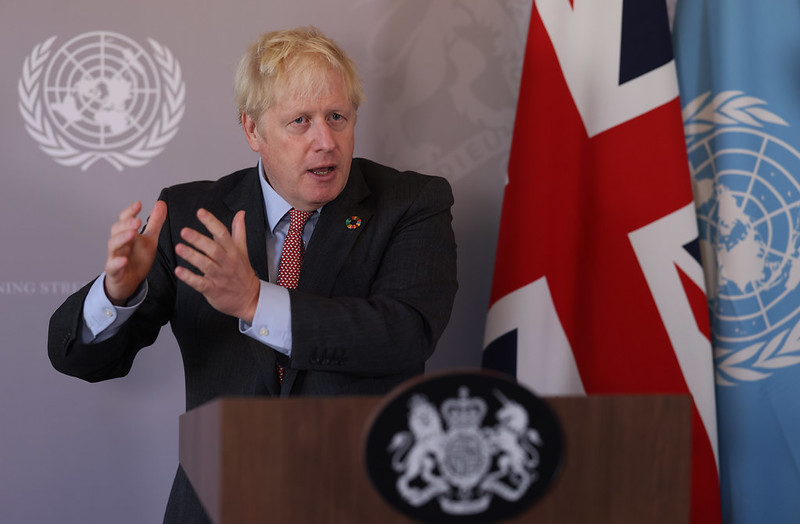Boris Johnson has pledged that the UK will cut greenhouse gas emissions by 68% below 1990 levels by 2030, an increase on the current target of about 57%. It is hoped that this will encourage other countries to raise their climate targets as well, as the UK prepares to co-host a virtual summit of world leaders on the climate later this month.
—
Johnson said, “We have proven we can reduce our emissions and create hundreds of thousands of jobs in the process. We are taking the lead with an ambitious new target to reduce our emissions by 2030, faster than any major economy and the UK is urging world leaders to bring forward their own ambitious plans to cut emissions and set net zero [carbon] targets.”
What is Happening?
- The UK’s updated NDC will be submitted to the UN as part of its pledge under the 2015 Paris climate agreement. It follows the advice of the government’s committee on climate change, which found that the costs of cutting emissions had fallen rapidly in the past few years.
- However, Ed Miliband, the shadow business secretary, says that the current carbon budget set for 2023 will probably be missed, as the government over the past decade had not brought forward policies to fulfil the aims. He said: “It is clear there is now a yawning gap between the government’s aspirations and its policies to deliver them. The government didn’t have the policies to meet their previous target, and the chasm will be even greater now.”
- Last month, Johnson set out a 10-point plan that he said would start a green industrial revolution, which includes a commitment to phase out petrol and diesel cars, invest in carbon capture technologies, build new offshore wind farms and invest in hydrogen fuel. Critics of the plan have called it “insufficient and inadequately funded,” saying that it will likely increase emissions due to the building of new roads and hundreds of thousands of new homes that will not adhere to net-zero carbon standards. Campaigners have also urged the government to produce a coherent plan that clearly lays out the measures to be taken, as well to place a further emphasis on green jobs, especially as the UK grapples with the economic fallout of COVID-19.
You might also like: UK Bans Sale of Petrol and Diesel Cars After 2030
It is understood that ministers are preparing more policies to supplement the 10-point plan and the NDC, including an energy white paper before the end of the year that will set out some new measures.
Other major world economies are also expected to come forward with updated NDCs. EU leaders will meet next week to decide on a potential 55% emissions cut by 2030, and the US president-elect, Joe Biden, is planning to rejoin the Paris agreement when he takes office. China has set a goal of reaching peak emissions by 2030 but has not yet submitted a formal plan to the UN, while both Japan and South Korea have pledged to achieve carbon neutrality by 2050.
Featured image by: Flickr

















